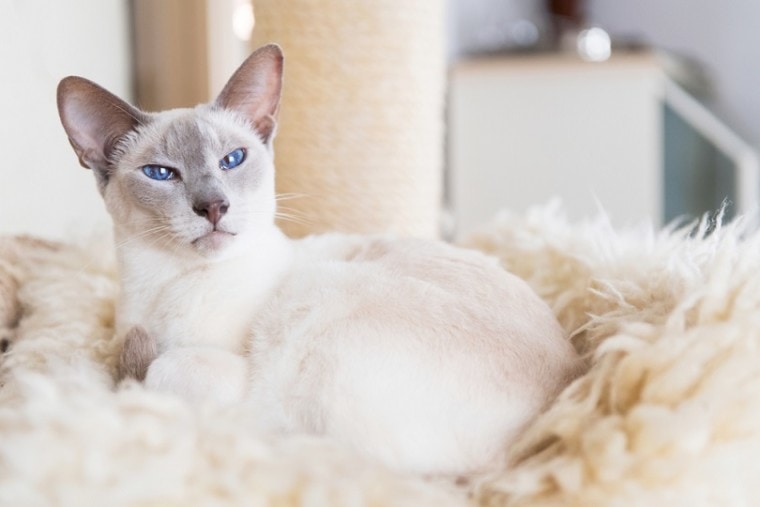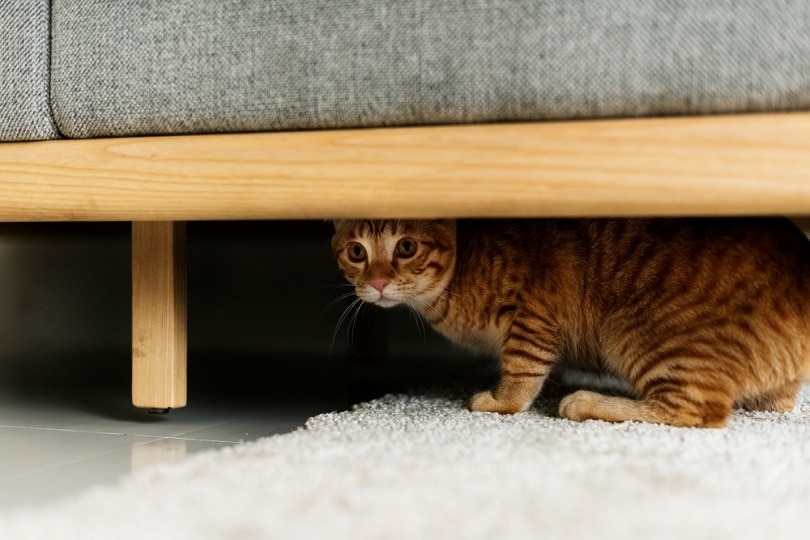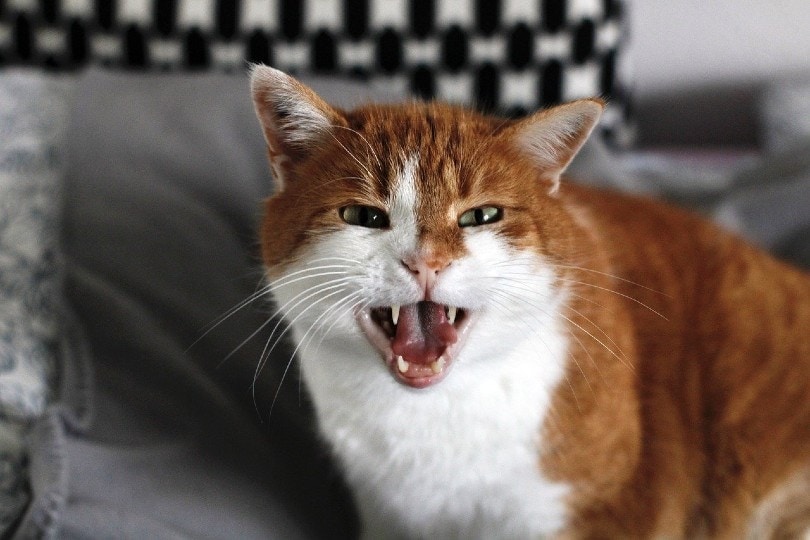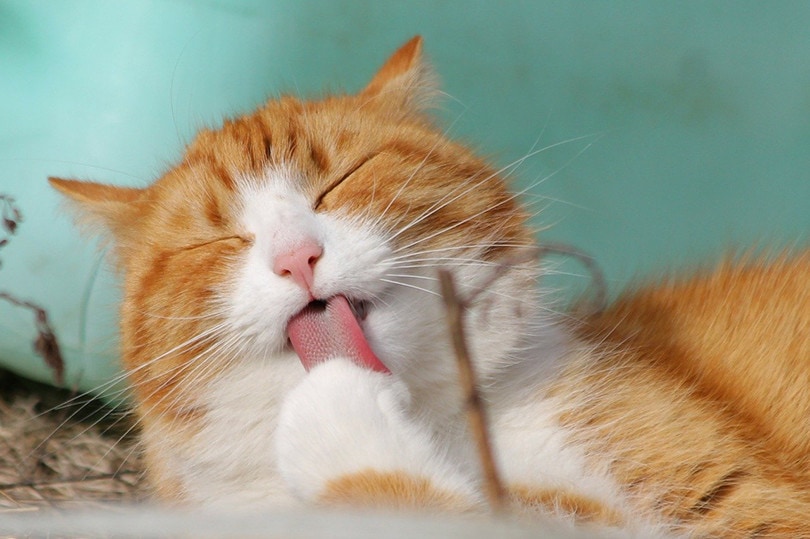
All cat owners know that our feline friends come with a range of personality quirks. Whether they charm us with their purrs or annoy us with pre-dawn food demands, life with cats is never boring. Some cats display more unique or even concerning behaviors like avoiding human interaction, being anti-social, or a disliking being touched. Owners of these special felines might wonder if something deeper is going on than their cats just acting like cats.
When human kids demonstrate behaviors such as avoiding physical contact or trouble connecting emotionally, the concern arises that they may suffer from autism. Knowing this, it makes sense that cat owners might wonder if their cat’s unique behavior could have a similar explanation. So can cats get autism? While cats can display some behaviors that are similar to those of autistic humans, autism is not a recognized medical condition in cats.
If your cat’s behavior can’t be explained by autism, what exactly is going on? We’ll look at some of the autism-like traits that you might see in your cat and possible explanations in this article.
What Is Autism?
Even in humans, autism spectrum disorder (ASD), is not easy to define, because it’s complicated and presents differently in each person who has it. What is known is that ASD is a developmental condition that causes behavioral, social, and communication issues, sometimes significant ones.
Autism is usually diagnosed in childhood but mild cases might escape notice into adulthood. Again, there’s no clearly defined set of symptoms that every autistic person is going to display.
These are just a few of the multiple complex behaviors and signs that people with ASD may display.
The 3 Reasons Cats Aren’t Autistic (Even If They Act Like It)
Because we can’t ask cats to explain why they act the way that they do, it’s easiest for us to think of their behavior in human terms. Using human meanings to explain animal behaviors is very common among pet owners, but it’s not accurate and can lead to a lot of misinterpretation of cat (and dog) behavior.
Let’s look more closely at some cat behaviors that are similar to those of a person with autism.
1. Anti-Social Behavior

Cats are often stereotyped as being anti-social because they tend to be more independent and not as overtly affectionate as dogs. Similar behavior is one of the signs of autism in humans, which may lead cat owners to make incorrect assumptions.
The self-sufficient, independent nature of cats is partly a product of how their relationship with humans developed. Unlike dogs, who were primarily close companions and protectors of humans, cats served a more functional purpose, mainly hunting rodents and other pests. In short, they didn’t need humans as much as dogs did.
Interestingly, research has shown that cats’ social behavior depends strongly on how their humans interact with them, especially when they are young. Cats who receive more interaction and attention, in turn, give more of the same. Kittens who receive early socialization usually grow into more interactive adult cats.
2. They Dislike to Be Held

While some cats are dedicated cuddlers, others absolutely hate being picked up, held, and sometimes even petted. Discomfort with physical touch is another sign of autism, but that’s not what’s going on with your cat here.
Cats’ dislike of being held can have several root causes. A big one can be a lack of socialization. Cats who never got used to human touch as kittens may never learn to tolerate it as an adult. Other cats may not trust humans due to previous negative experiences or even trauma.
It can be hard to tell when a cat is in pain but if your cat suddenly doesn’t want to be held or touched, it could be that they’re hurting somewhere. Finally, some cats just may not like to be held. Certain breeds of cats like being held more than others, such as Ragdolls.
3. Repetitive Behavior

Repeating certain actions over and over is another common sign of autism. Cats can also engage in various repetitive or compulsive behaviors. Obsessive overgrooming, pacing, meowing constantly, or sucking on fabric are all commonly seen repetitive behaviors in cats.
In cats, these types of behaviors aren’t caused by autism but are usually signs of anxiety or obsessive-compulsive disorder. This disorder often occurs in indoor cats and can be related to stress or environmental changes. Owners often unintentionally increase the frequency of these behaviors when they respond by giving the cat food or attention.
Cats who display these sorts of compulsive or repetitive behaviors don’t have autism but they do need a trip to the veterinarian if they continue long-term. Your vet can help you figure out why your cat might be acting out or refer you to a cat behavior specialist if needed.
Cats Don’t Get Autism But They’re Good Pets for the Autistic
No studies have shown that cats get autism, but several have looked at the impact pet cats have on people with autism. One study 1 showed that introducing a calm-tempered cat into a family with a child on the autism spectrum helped the kids become less anxious and more empathetic. They also showed improvement in problem behaviors among the children.
Another study 2 looked at how having an affectionate cat in the family impacted the behavior of ASD kids. Again, the results indicate that interacting with a loving cat typically has a positive result on children with ASD.
Not to worry, as still another study 3 indicated that cats living in an ASD home didn’t show increased levels of stress. It seems that people with ASD and a cat with a calm temperament could be just the right match for each other.
Final Thoughts
If you notice some strange behaviors in your cat, it might be easy to explain them away by thinking your kitty is autistic. However, because we know that cats don’t get autism, the truth is likely more complicated. As we discussed, some autistic-type behaviors in cats could be a sign that your cat is suffering from a different physical or mental disorder. Don’t hesitate to consult your veterinarian if you’re concerned or notice any of these signs.
Featured Image Credit: Ivonne wierink, Shutterstock








